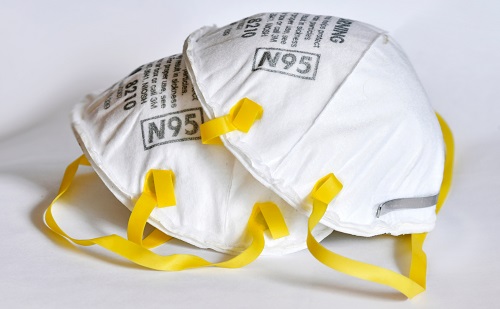
January 24, 2022 – The Biden administration recently announced plans to distribute 400 million N95 masks for free at thousands of pharmacies to adults for free, which could greatly encourage people to improve their COVID-19 safety practices. The masks are being distributed from the government’s Strategic National Stockpile, and will hopefully work to decrease transmission of the omicron variant and any other future variants that could emerge.
Willy Shih, a contributor to The Hill, writes that this plan could potentially hurt or help domestic mask makers. He says, “Will ‘free’ masks shut down [mask] sales? Early signs are not good. Armbrust USA in Texas saw its sales drop almost 50 percent overnight after the free-mask announcement, and Shawmut Advanced Materials in Massachusetts saw a 60 to 70 percent sales decline over the last two days. Even Premier, one of the largest GPOs, has expressed concerns about the free mask program.”
Shih argues that we really need to fortify the supply chain resilience in the United States. Here are his major takeaways:
- We need to diversify the supply base
By diversifying the supply base in the U.S., we can be better prepared for a future crisis. We need more than just two or three big suppliers to create a larger base for better innovation. Shih writes, “Maybe we should look for all the sites that mayors, governors, or congressional leaders called asking for help or visited to dedicate new mask-making lines and see if we can direct some business to those companies.”
- We should make long-term commitments to suppliers
Investing in the suppliers in the United States will help to stabilize demand in the future. Domestic suppliers will have higher costs than the overseas competition, so it’s important to purchase masks from these companies to fortify the stockpile. “The larger manufacturers already have a stable base and making stockpile purchases from the small producers will foster supply diversity and improved resilience. Stable demand helps them to maximize efficiency and keep people employed,” Shih said.
- We should find ways to help smaller suppliers
Finding ways to help these companies now is the best way to ensure that they stick around for when we need them most. Shih says, “We should find ways to help smaller domestic suppliers work their way through government procurement regulations. We should find ways to help them, and to say ‘yes’ to them, rather than simply ‘no.’”
